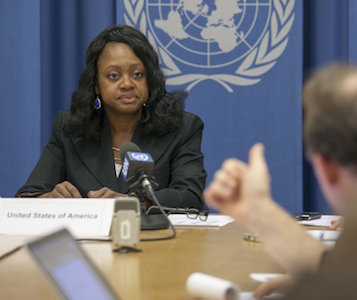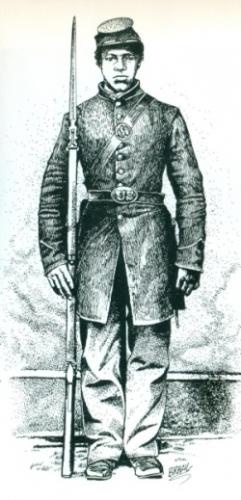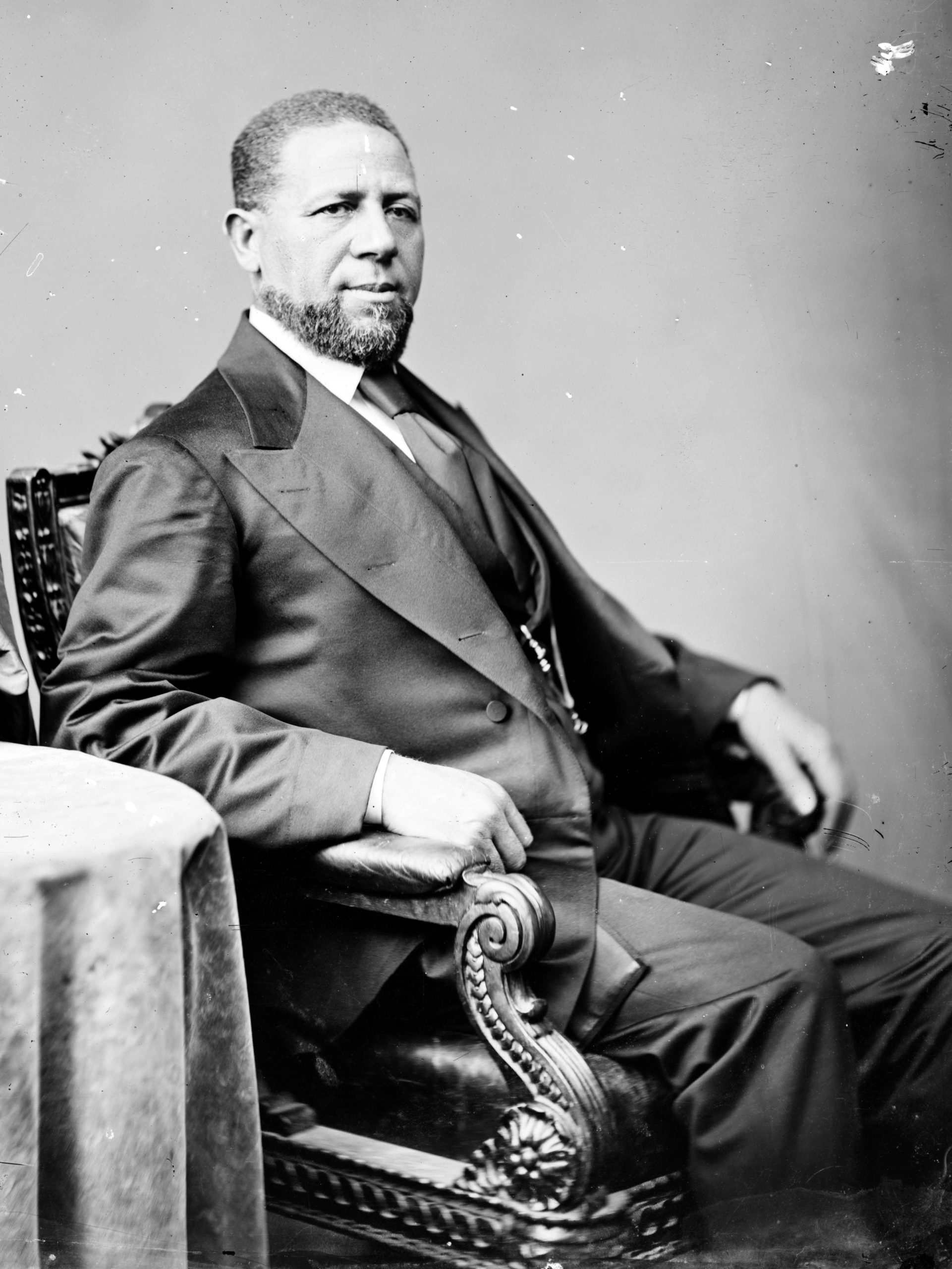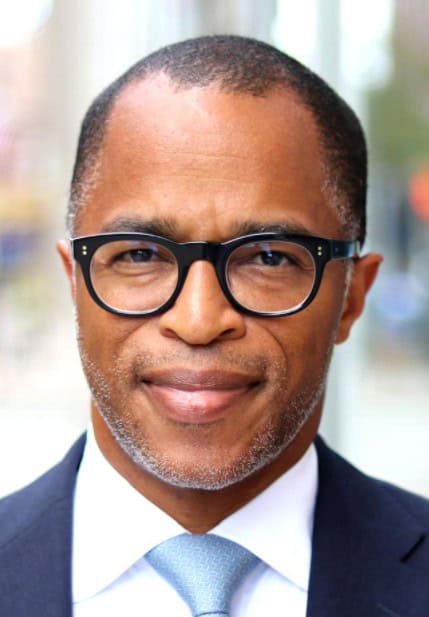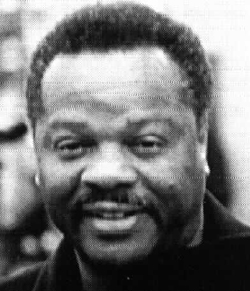Bonnie Jenkins is a retired U.S. Naval Reserve officer, diplomat, and expert in international security, arms control, treaty laws, and nonproliferation and disarmament of weapons of mass destruction. Born in Queens, New York, and growing up in the Bronx, New York, Jenkins was the child of a daycare worker (her mother) and a store manager (her father). She attended a private all-girls high school in New York, where she excelled at academics and athletics, and graduated in 1978. After graduation, Jenkins moved to Massachusetts to attend Amherst College.
Jenkins graduated from Amherst in 1982 and later enrolled in law school at Albany Law School. While in law school, she wanted a greater challenge, so she enlisted in the U.S. Air Force Reserves in 1986. She served for six years as a paralegal at bases in Massachusetts and Andrews Air Force Base near Washington, D.C. In 1992, she applied for a direct officer commission into the U.S. Naval Reserve, for which she was accepted and ultimately rose to lieutenant commander.
Near the end of law school, Jenkins won a prestigious Presidential Management Fellowship (PMF), working at the Pentagon and the State Department with the U.S. Arms Control Disarmament Agency. Her duties included traveling abroad with U.S. ambassadors and delegations as a legal advisor and counselor on negotiations for key arms control and nonproliferation treaties, ultimately doing so as a legal advisor for nine years.
Jenkins has also served as legal advisor to several important congressionally established commissions, including the Commission to Assess the Organization of the Federal Government to Combat Proliferation of Weapons of Mass Destruction, established in 1999, and as a consultant to the 2000 National Commission on Terrorism. She also served as counsel to the National Commission on Terrorist Attacks Upon the United States, commonly known as the 9/11 Commission, from 2004 to 2004.
Beginning in 2004, Jenkins worked as a program officer for U.S. Foreign and Security Policy at the Ford Foundation, where she was responsible for strengthening public engagement in U.S. foreign and security policy formulation as well as funding programs related to peacekeeping, women in conflict, and natural resource priorities. She also oversaw the foundation’s efforts to support nongovernmental organizations working in areas related to security.
In March 2006, despite preparing to retire after twenty years in military service, Jenkins received notice that she would be deployed to Iraq for active duty as a Naval Reserve Officer. Her assignment was changed, however, and instead, she was sent to the U.S. Central Command (CentComm) in Tampa, Florida, which oversaw U.S. military operations in Afghanistan, Iraq, Lebanon, Pakistan, Somalia, Sudan, and Syria. Jenkins served at CentComm for one year and then retired from Reserve duty and returned to the Ford Foundation in 2009.
Given her extensive background in military strategy, diplomacy, and terrorism security, in 2009, President Barack Obama nominated Jenkins as coordinator of Threat Reduction Programs with the rank of ambassador. She was confirmed by the U.S. Senate in June 2009 and assumed her duties immediately in the U.S. Department of State’s Bureau of International Security and Nonproliferation. As coordinator, Ambassador Jenkins is responsible for coordinating the State Department’s assistance programs to other countries aimed at reducing nuclear, chemical, biological, and missile threats. She is also the department’s lead liaison to the White House on its preparation for the Nuclear Security Summits.
Ambassador Jenkins’s formal education includes: a bachelor’s degree from Amherst College (1982); a juris doctor (JD) from Albany Law School (1988); a Master’s of Public Administration from the University of Albany, State University of New York (1988); a master’s (LL.M.) in law from Georgetown University (1995); and a doctorate (Ph.D.) in international relations from the University of Virginia (2005).

